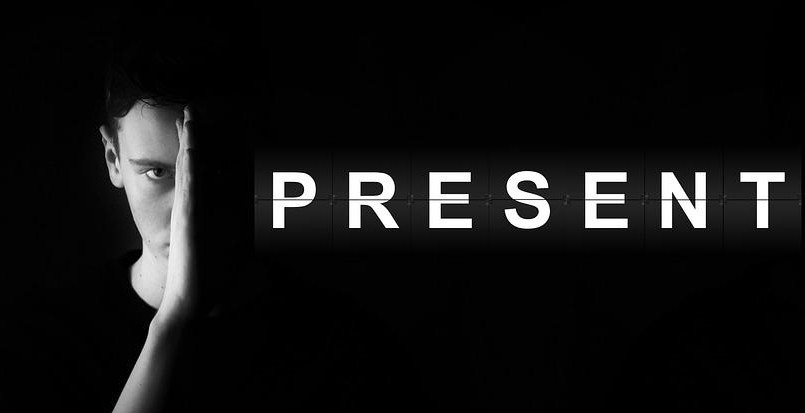Handling Rejection: A Healthy Approach from a Psychological Perspective
Rejection is a part of life that we all experience at some point. Whether it’s a job application, a romantic relationship, or a friendship, being rejected can be a painful experience that can leave us feeling hurt, frustrated, and even depressed. However, it’s important to understand that rejection is not a reflection of our worth or value as a person.
In fact, learning how to handle rejection in a healthy way can actually be a valuable life skill. By developing a resilient mindset and positive coping strategies, we can bounce back from rejection stronger and more confident than ever before.
The Psychological Impact of Rejection
Rejection can have a profound impact on our psychological well-being. Studies have shown that rejection can activate the same areas of the brain as physical pain, leading to feelings of sadness, anger, and even anxiety.
However, it’s important to remember that rejection is not a reflection of our personal worth or value. It’s simply a part of life that we all experience at one time or another. By learning how to handle rejection in a healthy way, we can build resilience and develop a positive outlook on life.

What is Rejection?
Rejection is a common experience that everyone faces at some point in their lives. It is the feeling of being unwanted, unloved, or excluded from a group or situation. Rejection can come in many forms, such as being turned down for a job, rejected by a romantic partner, or excluded from a social group. Regardless of the situation, rejection can be a painful and difficult experience to deal with.
Different Types of Rejection
There are several different types of rejection that people may experience:
- Social rejection: This type of rejection occurs when someone is excluded from a social group or activity. It can be caused by a variety of factors, including differences in personality, interests, or beliefs.
- Romantic rejection: This type of rejection occurs when someone is turned down by a romantic partner. It can be a difficult experience to deal with, as it often involves feelings of sadness, disappointment, and hurt.
- Job rejection: Job rejection occurs when someone is not chosen for a job they applied for. It can be a frustrating experience, as it often involves a lot of time and effort invested in the job application process.
- Self-rejection: This type of rejection occurs when someone rejects themselves. It can be caused by a variety of factors, including low self-esteem, negative self-talk, or a fear of failure.
Regardless of the type of rejection, it is important to remember that it is a normal part of life and everyone experiences it at some point. Learning to handle rejection in a healthy way can help individuals build resilience and cope with difficult situations more effectively.

Why Rejection Hurts?
Rejection is a universal human experience that can happen in various forms, such as job rejections, social rejection, romantic rejection, and more. Regardless of the form it takes, rejection hurts, and it can have a significant impact on our mental health.
The Psychology of Rejection
Rejection triggers the same parts of the brain that are activated when we experience physical pain. When we experience rejection, our brain perceives it as a threat to our safety and well-being. This triggers the release of stress hormones, such as cortisol and adrenaline, which can cause physical and emotional distress.
Furthermore, rejection can also impact our sense of self-worth and identity. When we are rejected, we may feel like we are not good enough, which can lead to negative self-talk and self-doubt.
The Impact of Rejection on Mental Health
Rejection can have a profound impact on our mental health, leading to symptoms such as anxiety, depression, and even suicidal thoughts. It can also impact our ability to form meaningful relationships and lead to social isolation.
Studies have shown that repeated rejection can lead to desensitization, where individuals become less responsive to rejection over time. However, this desensitization can come at a cost, as it can lead to emotional detachment and a lack of empathy towards others.
Therefore, it is essential to learn healthy coping mechanisms for handling rejection to prevent long-term negative effects on our mental health.
- Practice self-care and self-compassion
- Reach out to supportive friends and family members
- Seek professional help if needed
- Challenge negative self-talk and beliefs
- Engage in activities that bring you joy and fulfillment
By learning to handle rejection in a healthy way, we can build resilience and protect our mental health from the negative effects of rejection.

Coping with Rejection
Rejection can be a painful experience, but it is a part of life. Learning how to cope with rejection is an important skill that can help you grow and become more resilient. Here are some tips for coping with rejection:
Accepting Rejection
The first step in coping with rejection is to accept it. This can be difficult, but it is essential for moving on. Don’t try to deny or minimize the rejection you have experienced. Acknowledge it and allow yourself to feel the emotions that come with it. It’s okay to be sad or disappointed. Give yourself time to process your feelings and come to terms with what has happened.
Developing Resilience
Resilience is the ability to bounce back from adversity. Developing resilience can help you cope with rejection and other challenges in life. One way to develop resilience is to practice self-care. Take care of yourself physically, emotionally, and mentally. Get enough sleep, eat well, exercise, and engage in activities that bring you joy. Another way to develop resilience is to practice positive thinking. Focus on your strengths and accomplishments, and remind yourself that rejection does not define your worth as a person.
Finding Support
When coping with rejection, it can be helpful to have support from others. Reach out to friends, family, or a therapist for support. Talking about your feelings can help you process them and gain perspective. You can also find support in groups or communities that share your interests or experiences. Connecting with others who have gone through similar experiences can be validating and empowering.
| Do: | Don’t: |
|---|---|
|
|
Overcoming Rejection
Rejection is an inevitable part of life. Whether it’s a job rejection, a breakup, or a rejection from a friend, it can be painful and overwhelming. However, it’s important to remember that rejection does not define you. Here are some tips on how to overcome rejection:
Learning from Rejection
Although rejection can be difficult to deal with, it can also be a learning experience. Take some time to reflect on why you were rejected. Was it a lack of experience or skills? Was it a personality clash? Once you understand the reasons behind the rejection, you can take steps to improve yourself. For example, if you were rejected for a job due to a lack of experience, you can look for opportunities to gain more experience in that field.
Turning Rejection into Opportunity
Rejection can also be an opportunity to try something new. Perhaps the rejection from a job you really wanted is a sign that you should pursue a different career path. Or maybe the rejection from a friend is a chance to meet new people who share your interests. By reframing rejection as an opportunity, you can turn a negative experience into a positive one.
Moving On
It’s important to acknowledge your emotions and allow yourself to feel them. However, it’s also important to move on. Dwelling on rejection can lead to negative thought patterns and hinder your ability to move forward. Instead, focus on the things that bring you joy and fulfillment. Surround yourself with positive people who support and encourage you. Remember, rejection is not a reflection of your worth as a person.
| Do | Don’t |
|---|---|
|
|

Conclusion
Handling rejection can be a daunting task, but it is a necessary part of life that we all must face. From a psychological perspective, it is important to understand that rejection is not a reflection of our worth as a person. It is a subjective experience that is influenced by external factors such as the other person’s mood, preferences, and circumstances.
It is essential to practice self-care and self-compassion when dealing with rejection. This includes taking care of our physical and emotional needs, practicing positive self-talk, and engaging in activities that bring us joy and fulfillment.
Additionally, it is important to reframe rejection as an opportunity for growth and learning. Instead of dwelling on the negative aspects of rejection, we can use it as motivation to improve ourselves and our skills.
Summary
- Rejection is a subjective experience influenced by external factors.
- Self-care and self-compassion are crucial when dealing with rejection.
- Reframing rejection as an opportunity for growth can lead to positive outcomes.
Takeaway
By adopting a healthy approach to handling rejection, we can improve our overall well-being and increase our resilience to future rejections. Remember to practice self-care, reframe rejection as an opportunity for growth, and most importantly, be kind to yourself.
